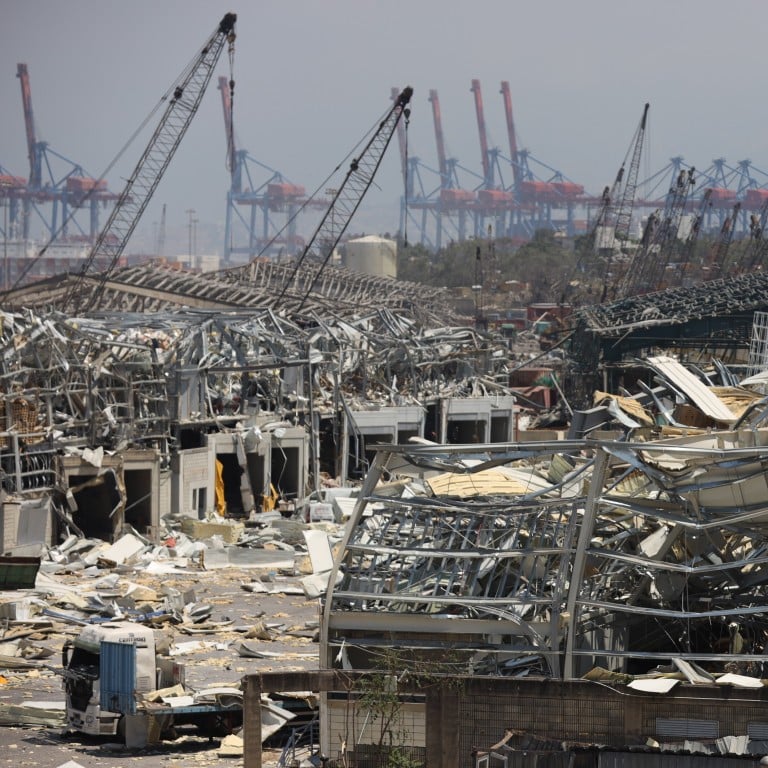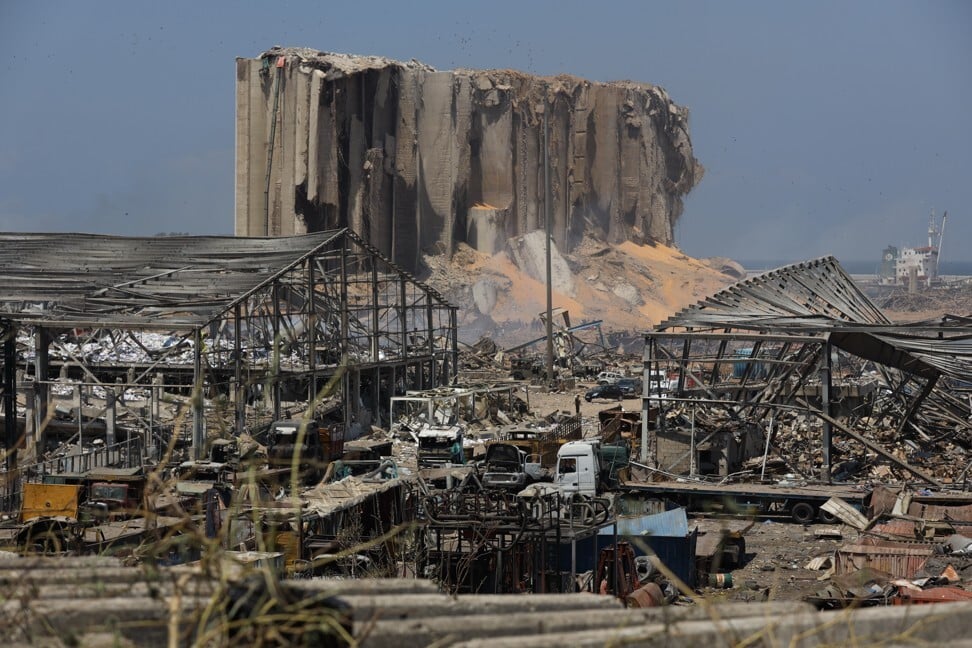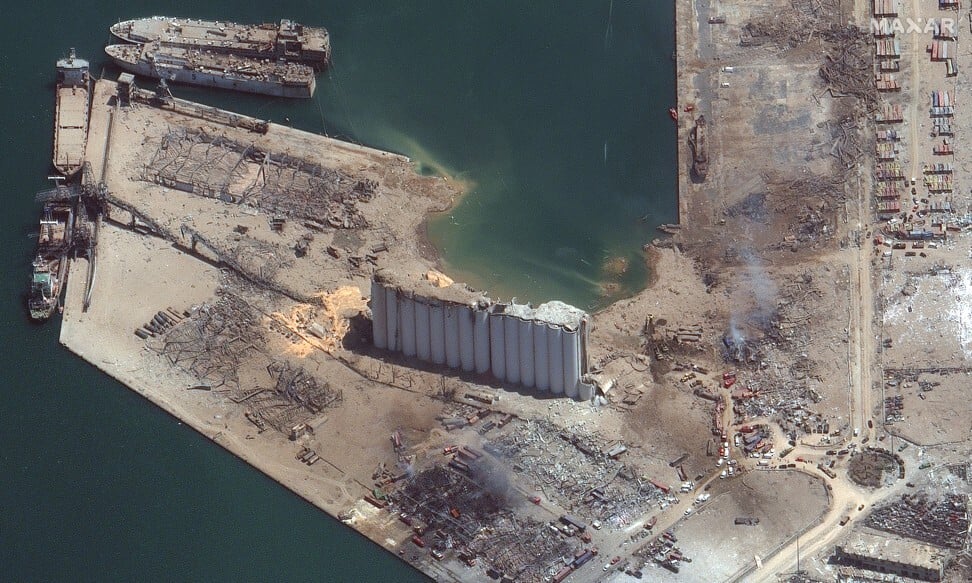
Beirut disaster another reminder on dangers of explosive materials
- Storing items such as ammonium nitrate close to city centres only invites tragedy, as we saw in Tianjin five years ago and now in Lebanon
The lessons of a terrible industrial disaster in China five years ago this month provide food for thought today. No one could have imagined that history would repeat itself on Tuesday in Beirut, and that if heeded those same lessons might have prevented a human catastrophe.
In both cases fire in a port warehouse area ignited massive explosions of illegally stored combustible ammonium nitrate, an agricultural chemical, flattening the surrounding area and severely damaging adjacent residential buildings.
The Tianjin blasts killed 173 people, including 110 first-responder firefighters and police unaware of the presence of an 800-tonne ammonium nitrate time bomb. Lebanon’s death toll is more than 100 and rising as rescuers reach collapsed buildings.
The Lebanese Red Cross says more than 4,000 were injured, with many in bloodstained clothes queuing at the doors of hospitals already stretched to capacity by the coronavirus pandemic. Estimates of those left homeless have exceeded 200,000.
The blaze from the Tianjin explosions was so big that Japanese meteorological agency satellites caught it on film. Beirut’s cataclysmic and toxic blast was even bigger.
An investigation of the Tianjin disaster resulted in a suspended death sentence for the chairman of the company that owned the warehouse and jail terms for 48 other company employees and local government officials.
Lebanese Prime Minister Hassan Diab promised that those responsible for the latest blast would be punished. He tweeted it was “unacceptable” that a shipment of about 2,750 tonnes of ammonium nitrate was stored in a warehouse in Beirut’s port for six years without safety measures.
Beirut declared ‘disaster city’ as twin blasts kill 100, injure 4,000
In Washington, US President Donald Trump said generals had told him it might have been a bomb, but the Pentagon declined to clarify this and it remains speculation.
Hopefully the most basic lessons about the safe storage of hazardous materials have now filtered through to the farthest corners of the earth.

But it is too late for Lebanon, already mired in the misery of poverty and unemployment thanks to its worst economic crisis in decades. The economy has collapsed in recent months, with the local currency plummeting and businesses closing en masse.
It is paramount that an investigation reveals all the circumstances of the disaster, particularly how such a large and potentially dangerous amount of explosive material came to be stored for so long in such a vulnerable location, how it passed rudimentary safety checks or whether it was even subjected to them.
Only when there are answers to such questions can it be said with any confidence that the lessons of Tianjin and Beirut may help avoid more senseless loss of life.


